Crossbow 'fired from close range' in Gerald Corrigan fatal attack
- Published
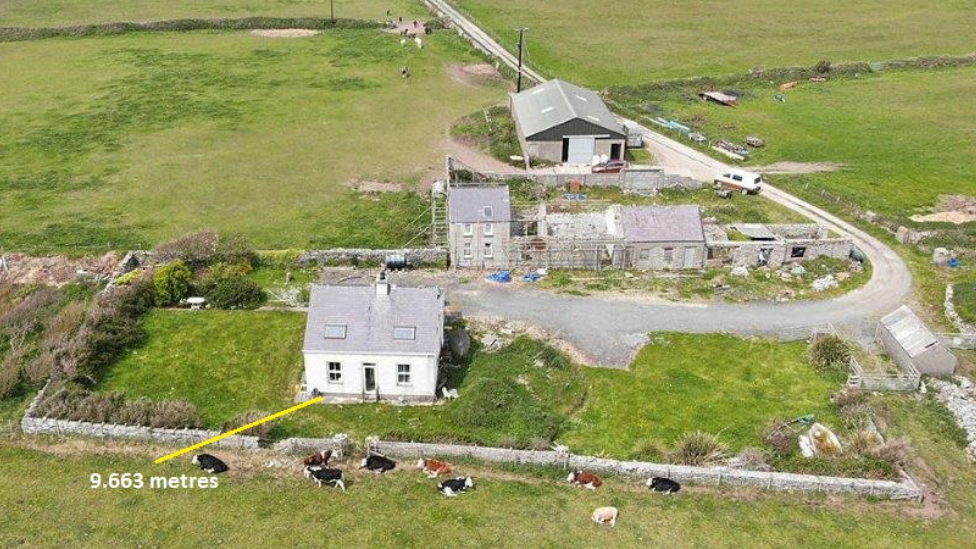
This image of Gerald Corrigan's house shows where North Wales Police believe the shooter was located
A man who died after being shot with a crossbow while he was trying to fix a satellite dish on his roof was probably shot from close range, a court heard.
Gerald Corrigan, 74, suffered two holes in his stomach and damage to other organs in the Anglesey attack in April.
Forensic firearms scientist Andre Horne told Mold Crown Court the weapon used was designed to make hunted animals "rapidly bleed to death".
Terence Whall, 39, of Bryngwran in Anglesey, denies murder.
Firearms expert Mr Horne said the broadhead arrow used in the attack on Mr Corrigan had razor sharp edges used for hunting.
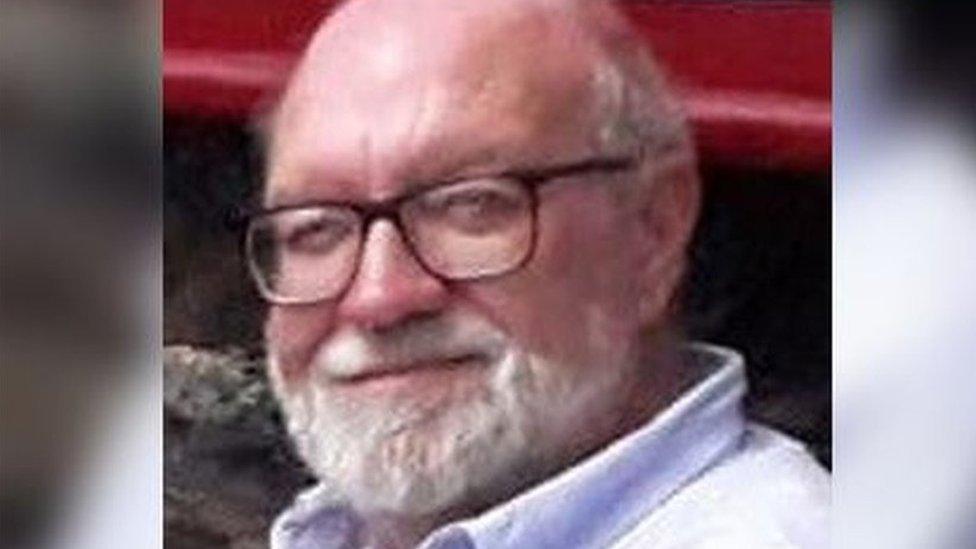
Gerald Corrigan died three weeks after being shot outside his Anglesey home
He said hunting animals with crossbows was illegal in the UK and broadhead arrows were not used for target practice because of the damage they can cause.
Mr Horne said he believed the shooter must have been just outside Mr Corrigan's garden, adding: "I wouldn't expect the shooter to be standing out in the open where Mr Corrigan would be able to spot him.
"I would expect the shooter to be concealing himself."
Home Office pathologist Dr Brian Rodgers said Mr Corrigan suffered "penetrating injuries" and was critical throughout attempts to save him.
He said the crossbow bolt went between two ribs and through his spleen, causing him to "bleed profusely".
It also went through his intestine, hitting a gastric artery and bruising his heart before coming out of the other side of his body.
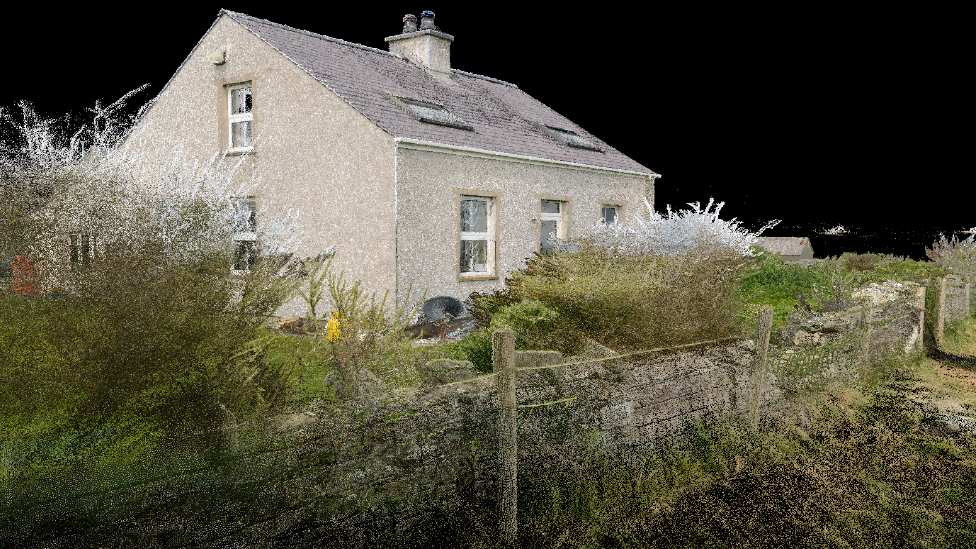
This police image shows the sight the shooter had of Gerald Corrigan's house
The bolt then shattered a bone in Mr Corrigan's arm it then made contact with before hitting a wall of the house.
After the shooting, Mr Corrigan was taken to Ysbyty Gwynedd, Bangor.
He needed immediate surgery before being transferred to a major trauma unit, where he was "critical throughout", Dr Rodgers added.
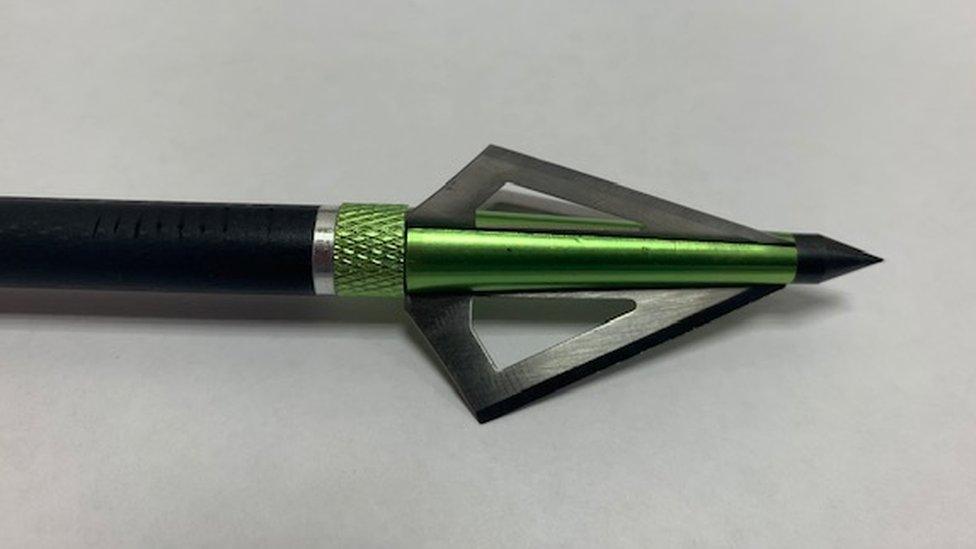
This bolt is similar to the one Mr Corrigan was hit by, but is 2in (5cm) shorter
Mr Corrigan developed sepsis, linked to his injuries, and also gangrene in his toes and fingers.
Dr Rodgers visited the scene and concluded the crossbow must have been fired from close range, perhaps near the wall of his property.
He added: "Clearly from the injuries sustained, this must've been a powerful weapon."
Mr Whall also denies conspiracy to commit arson and conspiring to pervert the course of justice, which Gavin Jones, 36, of High Street, Bangor, has also pleaded not guilty to.
The trial continues.
- Published27 January 2020
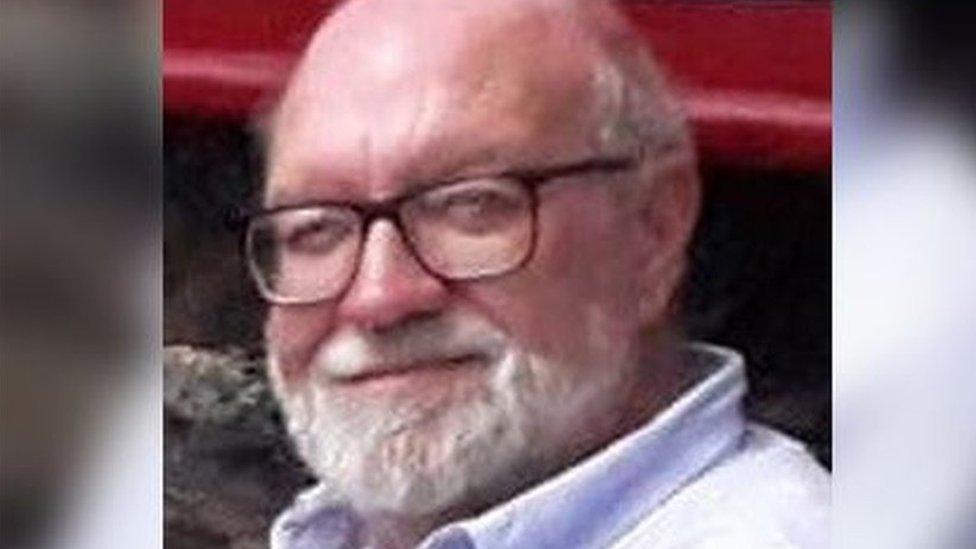
- Published28 January 2020
